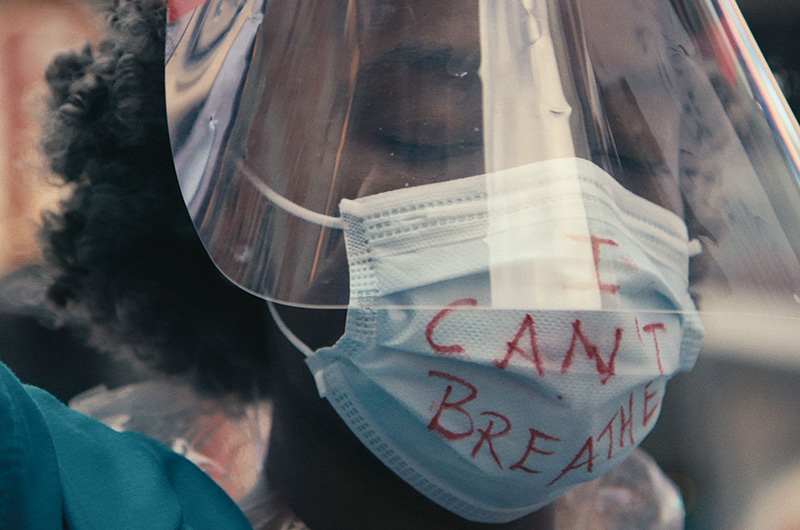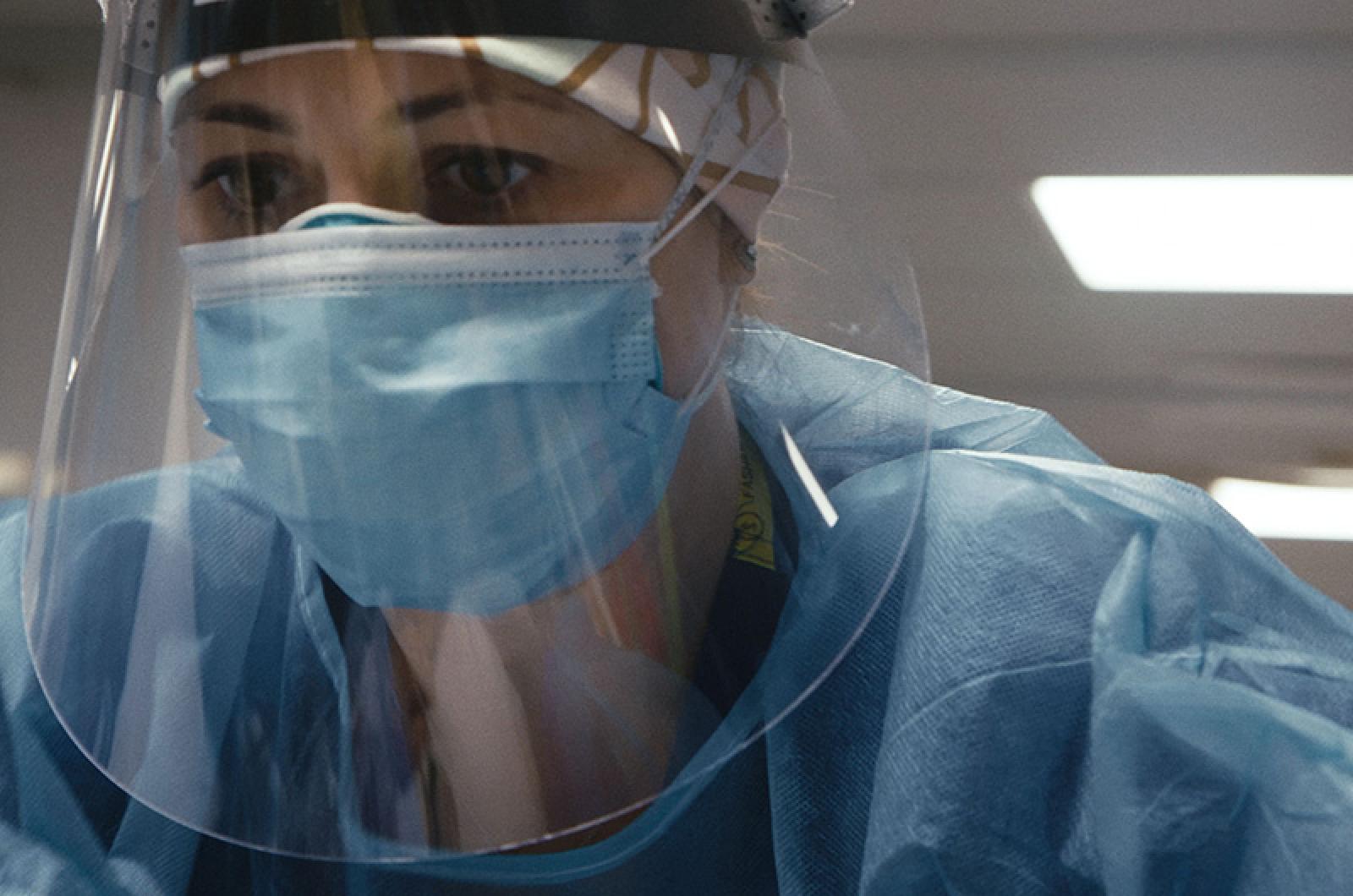Documentary filmmaker Matthew Heineman has filmed in war zones. He has documented the lives of vigilantes taking on Mexican drug cartels and citizen journalists as they exposed the horrors of ISIS.
But none of those experiences were as challenging as filming The First Wave, he said, his latest documentary which takes viewers inside Long Island Jewish Medical Center in Queens during the first months of the Covid-19 pandemic.
“It was just so difficult on every level — logistically, emotionally, physically — unlike anything I’ve ever experienced,” Mr. Heineman said during a phone interview from Los Angeles. “Having filmed in war zones before, you can sort of turn off your brain when you come back home. But with this, we were living the same thing we were documenting. It was a 24/7 full-on experience for a very, very long period of time.”
The logistical hurdles of filming were also heightened at every moment, having to take into consideration that putting a microphone on someone or setting the camera down on a table were ways to spread the virus, he said.
Mr. Heineman is a seasonal resident of Chilmark and on Saturday his film will be screened at the Martha’s Vineyard Film Center, where many of his previous films have been featured, including Cartel Land, which was nominated for an Academy award. He will take part in a Q&A after the film via Skype.
“This was definitely the hardest film I ever made, by far,” he said. “It’s also the film I’m most proud of. Obviously [we] witnessed a lot of death and sadness, but I think the overwhelming feeling that we had every single day was just inspiration. There was so much love and beauty and humanity that we were able to witness.”

Mr. Heineman said he decided to make the film while attending the Sundance Film Festival in January 2020, when the virus had emerged in China but was still in America’s periphery.
“When the first cases started to get reported in the U.S., it just started to feel like this could probably be something really big,” he said. “As it sort of grew through the early weeks in March... at that point the issue of Covid was so relegated to headlines and to stats and to, frankly, misinformation, that I just felt this need to try to put a human face on it.”
“It’s likely the most important story that I’ll ever tell,” he added.
One of the main characters is Dr. Nathalie Dougé. Through her experiences the viewer is thrust into the chaos and emotion of being on the front lines at the beginning of the pandemic.
“The rush of running down the hallway as someone’s coding, the beeps and the chaos if someone’s being intubated…my goal is always to put people in those rooms…in their shoes and make you try to feel what it felt like . . . to be in that situation,” Mr. Heineman said.
The film also follows two patients with severe complications from the virus. Ahmed Ellis, a 36-year-old police officer, spent two months in the hospital. Brussels Jabon, a nurse, was pregnant when she contracted the virus and had to have an emergency C-section before going on a ventilator. The viewer goes inside the homes of each patient and gets to know families living with the prospect of their loved one dying.
“I think if I was going to distill the film down to sort of one thing, it would be how human beings come together in the face of crisis,” Mr. Heineman said.
Absent from the film is former President Donald Trump and Dr. Anthony Fauci, a choice Mr. Heineman made to steer clear of the political aspect of the virus, he said.
“One of the greatest tragedies of this pandemic is the fact that, especially in the U.S., it became so politicized. It didn’t have to be that way. It could have been something that brought our country together. The last thing in the world that I wanted to do was add to the sort of partisan discourse.”
One of the reasons the virus became so politicized was that many weren’t confronted with its severity, Mr. Heineman said, citing this as another reason for making the film.
“We, as an American public, were so shielded from the reality that was happening inside hospitals. We didn’t see images of how people were communicating with their families or not. How people were living or dying and the trauma that was happening inside hospitals.”
The film also explores the racial justice protests in the aftermath of the murder of George Floyd.
“When George Floyd was killed . . . and his last words, ‘I Can’t Breathe,’ which obviously were echoed endless times . . . in every hospital and every Covid ward across the world. These two ideas were very connected,” he said.
Mr. Heineman said he hopes the film will cause viewers to reflect on what the world has been through as the virus continues to shape society.
“Every single person on this Earth has been touched by Covid . . . the very fabric of society has been changed. I hope that this film provides a vehicle through which we can reflect on all that we’ve been through,” he said. “What has this opened up inside of us? How can we apply that to the present? How can we apply that to the future? . . . This story is not over.”
The First Wave screens for one-night-only at the Martha’s Vineyard Film Center on Saturday, Dec. 4 at 7:30 p.m. For tickets and information, visit mvfilmsociety.com.





Comments (2)
Comments
Comment policy »